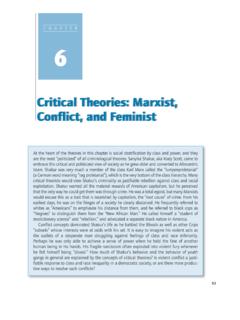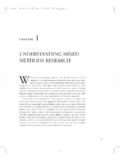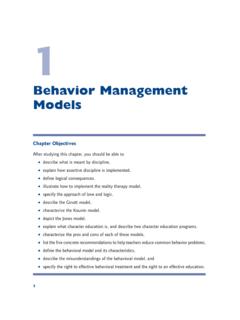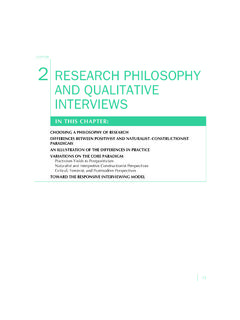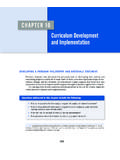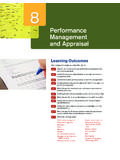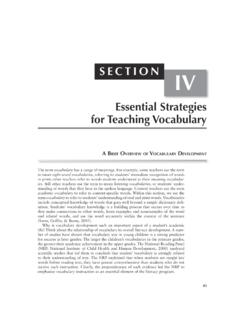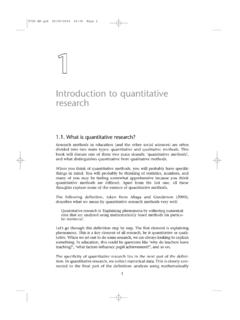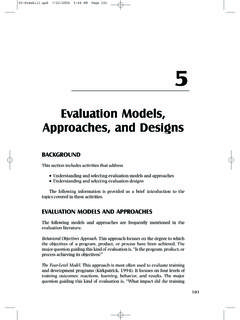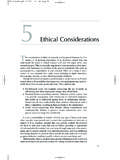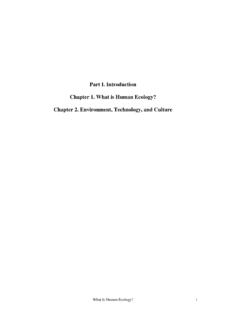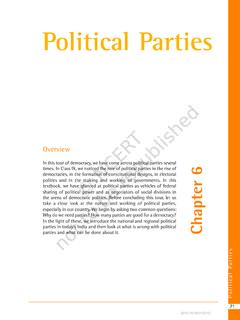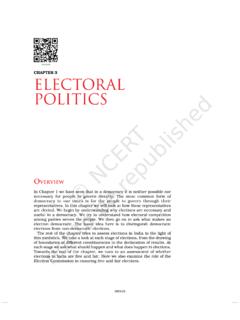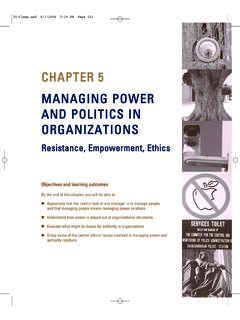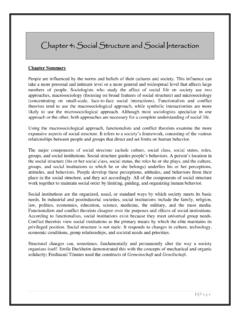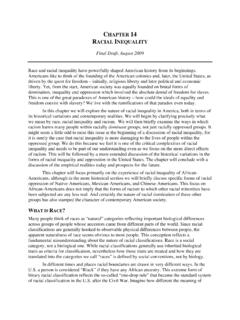Transcription of Chapter 7 Evaluating Information: Validity, Reliability ...
1 [10:45 7/12/2007 ]Job No: 5052 Pierce: Research Methods in PoliticsPage: 79 79 99 Chapter 7 Evaluating information : validity , Reliability , accuracy ,TriangulationTeaching and learning consider why information should be understand the distinction between primary and secondary sources learn what is meant by the validity , Reliability , and accuracy of consider some warnings about official data consider further the distinction between facts and truth understand the origin of triangulation and its application to consider methods of sampling which can be used to collect data. Do not feel absolutely certain of anything .Bertrand Russell, Chapter 6, you read how published research reports can be assessed. Theresearch component analysis and Rose s ABCDE model examined the completenessand coherence of the research process adopted.
2 They also considered the validityor otherwise of the relationships between theory and hypothesis, concepts andindicators, empiric data and analysis, and conclusions. Research essentially involvesthe gathering or collection of data that addresses the research question and enablestheory to be tested or developed. So the data from which answers to the researchquestion are to be drawn must be appropriate in terms of its relevance and efficacy fitness for purpose . Much of this information will be drawn from published sources[10:45 7/12/2007 ]Job No: 5052 Pierce: Research Methods in PoliticsPage: 80 79 9980 Research Methods in Politicsthat will be supplemented as necessary by new information specially collected for theresearch project. So this Chapter therefore suggests how best you can assess existingdata and seek additional textbooks useinformationanddatainterchangeably.
3 Some complicatematters by treating data as a plural noun and therefore writing the data are .. While this is grammatically correct (fordatais indeed the plural of thedatum), it cansound odd to students untrained in Latin conjugation. The author, Kingsley Amisnotably described such Latin correctness as the practice of wankers as opposed to berks who used slipshod English (1977)2. So this book follows everyday practice oftreating data as singular. Politicians also tend to use the word evidence to describewhat they would wish us to regard as conclusive, compelling information whicheither proves or, in its absence, disproves is there a real difference betweendata, informationandevidence? Certainly,the dictionary meanings are similar. But some distinction is useful. Researchers tendto speak ofdataas the mass of disordered, raw material from whichinformation(knowledge) is abstracted to provideevidenceto support argument and conclusions.
4 ( information technologists adopt a similar distinction by defining information asprocessed data sets attaining meaning). So it is helpful to conceive of research as involving three , the raw data is gathered. Second, the data is organised and distilled intoinformation. Thirdly, evidence is abstracted from the information through processesof analysis and testing. But neither information nor evidence is self-evident: thematerial seldom speaks for itself . Some interpretation is required. However, wheninterpretation is re-interpreted, some distortion of the original is inevitable. So somedistinctions, criteria and tests are useful to weed out distortions and untruths .The distinctions adopted are betweenprimary and secondary sources of criteria used arevalidity, Reliability and accuracy . The main test adopted and secondary sourcesThe value of this distinction depends on which of the different definitions ofprimary and secondary adopted.
5 Some authorities adopt the definition that primaryinformation is data generated specifically for the research project whilst secondaryinformation is data collected for other research. But, in this book, the majority view prevails: that data is distinguished at the outset by itsprovenance(source).Primarydata is original, unedited and first-hand whilstsecondarydata is second-hand ,edited and interpreted material. However, the distinction between the informationthat you generate in the course of our research and that which you have abstractedfrom other sources is valuable. I will therefore term this (after Huxley) data[10:45 7/12/2007 ]Job No: 5052 Pierce: Research Methods in PoliticsPage: 81 79 99 Evaluating information : validity , Reliability , accuracy , Triangulation81and possible, politics researchers prefer to use primary, eye-witness data recorded at the time by participants or privileged observers.
6 The mainsources of primary data used by politics researchers are documentary (written) records including minutes, letters, emails interviews with key individuals, agents and actors records, election results, census own observation and records of interviews, etc. and other sources are popular songs, poems, paintings and cartoons, photographs,graffiti, murals ( N. Ireland), T-shirts and videos. But beware, all records,however primary incorporate some degree of bias, perception, interpretation, andediting, whether contextual, cultural, curatorial or primary records include accounts of meetings, minutes, diaries, letters,reports, telephone transcripts, telegrams, emails, and newspaper reports, etc. Buthow reliable, accurate and truthful are they? Who actually prepared them and why?Arguably, all accounts are partial because they arefunctional, designed to fulfila purpose.
7 Butwhosepurpose? Most public records reflect the interpretation ofthose holding power. Foucault argued that the victors write history. Alternatively,howreliableare the diaries of (former British Labour Cabinet ministers) RichardCrossman, Barbara Castle or Tony Benn? Did their cabinet colleagues know thatthey were keeping diaries and change their behaviour accordingly?Crossman offers telling insights into official records: Thursday, 28 July 1966 One of the disconcerting features of the recent crisis has been the Cabinet Secretariat shabit of suppressing whole sections of the minutes on the grounds that they are toosecret to circulate. But this morning they didn t do section on prices and incomeswas reported at enormous length and most of what we said has been very adequatelysummarised. Of course, this means that the Cabinet Secretariat regards the wholesubject as fraught with danger and was careful to record the arguments of the minutes are highly political and the way they are written has enormous eliminating whole sections from the discussion and reporting other sections in full,the Secretariat can greatly affect the way a decision is interpreted in Whitehall.
8 (Crossman, 1976: 590)4 But the BBC s former Political Editor, John Cole wrote of Crossman that: .. [Crossman] had a brilliant mind, was a great polemicist, and a subtle thoughsometimes self-defeating operator. But if you were Constable Plod seeking a reliable[10:45 7/12/2007 ]Job No: 5052 Pierce: Research Methods in PoliticsPage: 82 79 9982 Research Methods in Politicswitness, he would not be your first choice. I sometimes wondered if he knew howto distinguish what he said to the Prime Minister from what the Prime Minister saidto him .(Cole, 1996: 64)5 But even PC Plod can be an unreliable witness: Churchill s bodyguard, DetectiveInspector Walter Thompson was criticised by Churchill s biographer, Roy Jenkinsfor exaggerating his importance in events (Jenkins, 2001: 552).6 Inspector Thompson in his two volumes of reminiscences is good at capturing the heartof the matter but less reliable on exact dates, times and places than might have beenhoped for a meticulous detective.
9 (Jenkins, 2001: 562).As a general principle, all primary information in the form of records other thanthose that you make through your own observations should be treated withcaution. A health warning is necessary. You should always ask prepared the record? whom was it prepared? whom was it intended? what purpose was it made? would have corrected or otherwise altered the record before it was finalised?A common misconception is to believe that numeric information is more trust-worthy than other formats because it is less vulnerable to spin . But, becausenumeric records are generally regarded as trustworthy, they attract example, the TUC and ILO accused the Thatcher government of changingthe definition of unemployment twenty-three times (between 1979 and 1991) toreduce the headline figure and therefore conceal the true extent of government responded to the criticism by saying that each new definitiondistinguished further between genuinely unemployed people and others claiming tobe unemployed to obtain benefits.
10 A similar charge was levied later against the NewLabour government that the lower levels of unemployment recorded and reportedhad been achieved by accepting more readily claims (on mainly health grounds) forthe (higher) incapacity benefit. You should therefore check numerical records forany changes of definition and any selective use of periods to enable worst recordsto be implication, data that is not primary must be secondary after the event, it should not be discarded. Secondary information will include records[10:45 7/12/2007 ]Job No: 5052 Pierce: Research Methods in PoliticsPage: 83 79 99 Evaluating information : validity , Reliability , accuracy , Triangulation83gathered from a number of separate, primary sources and may contain authoritativecommentary and analysis. The source s interpretations and bias are important especially of evidence of how events were interpreted at the time and later, and themoral relativism of , Reliability and accuracyAs you learned in Chapter 6, social science research confers a special meaning tovalidity: the extent to which a measure, indicator or method of data collection possesses thequality of being sound or true as far as can be judged.
